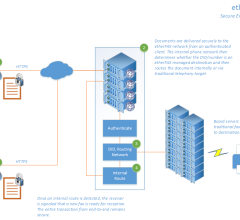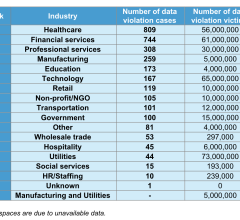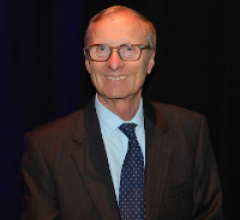August 14, 2014 — Approximately 70 percent of the recent decline in healthcare spending growth from 2009-2011 was due to the economic downturn, and not to other factors such as health sector responses to the Affordable Care Act, according to a new study published in the August issue of Health Affairs. As the economy recovers, health spending is likely to increase at a faster pace, conclude the authors, David Dranove, Craig Garthwaite and Christopher Ody of the Kellogg School of Management at Northwestern University.
"The source of the slowdown in healthcare spending growth, and whether this slowdown will continue, has been much debated," said Dranove, a professor at the Kellogg School of Management at Northwestern University. "Our analysis shows that the slowdown was mostly due to the sluggish economy, not to structural change in the healthcare sector. The Affordable Care Act may ultimately succeed at reducing costs, but it hasn't done so yet."
The Northwestern researchers are among the first to pinpoint the effect of the economic slowdown on healthcare spending for the privately-insured, working-age population. They examined private insurance claims data covering 2007-2011 from the Health Care Cost Institute (HCCI), which represents the healthcare spending of nearly 47 million people with employer-sponsored insurance in all 50 states.
From 2009-2011, health spending growth for this population slowed by 2.6 percentage points from the previous two years. By calculating the overall decline in employment during this period, the authors predict that health-spending growth would have been 1.8 percentage points higher if the economy had not faltered in 2008. Thus, they concluded that 70 percent of the decline in healthcare spending growth was the result of the stagnant economy.
"There has been disagreement over the years as to whether health spending is recession proof. This study shows it's not," said Garthwaite, an assistant professor at the Kellogg School of Management.
The analysis, which focuses on privately-insured individuals, highlights that the slowdown in health spending was not only caused by individuals who lost their jobs and employer-provided health insurance.
"Even individuals who retained insurance during the downturn reigned in their health spending. This demonstrates the broad effects of a recession on health spending," said Garthwaite.
The researchers compared health spending in areas of the country affected by the economic downturn with areas that were largely unaffected. Insured people living in the hardest hit areas experienced the smallest increases in health spending.
For example, from 2008-2009, Las Vegas — a particularly hard-hit region — experienced a 5.6 percentage point decline in the fraction of residents working. From 2007 to 2011, health spending in Las Vegas increased 5.4 percent. In contrast, Trenton, N.J., saw a 1.6 percentage point decline in the fraction of residents working and a 29 percent increase in health spending.
"The majority of Americans have private insurance, so understanding their health spending patterns is critical to understanding what influences national healthcare expenditures," said HCCI Executive Director David Newman. "Our partnerships with academic researchers like Northwestern are starting to shed light on the forces driving healthcare cost growth and foster solutions that lead to better and more affordable care."
For more information: content.healthaffairs.org/content/33/8/1399.abstract


 May 17, 2024
May 17, 2024 








